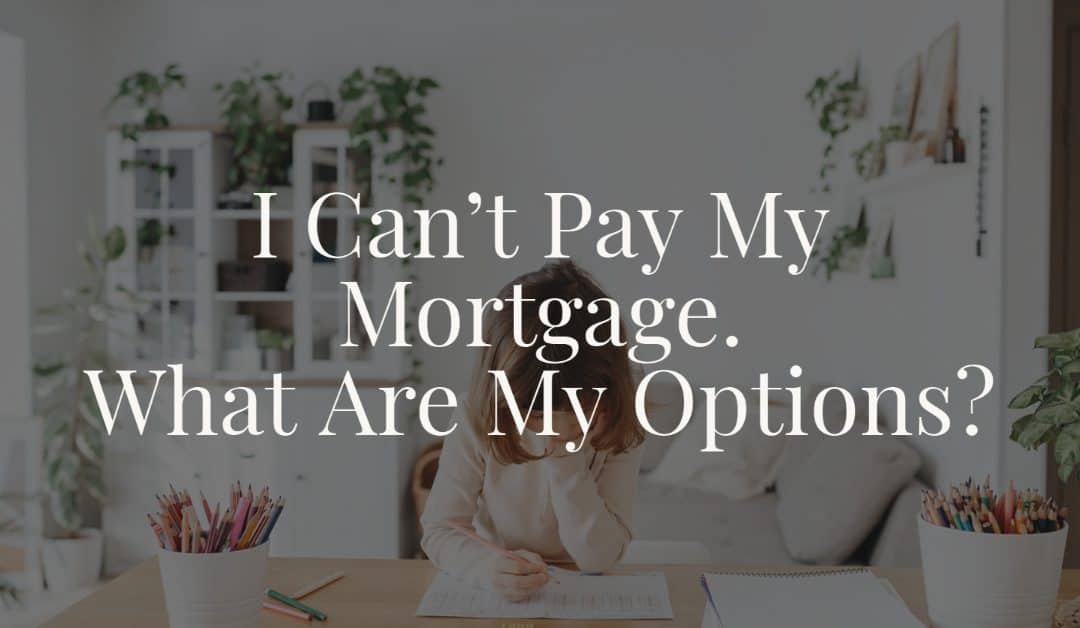During the pandemic, the struggle for affordable housing extended to homeowners as well as renters. If you can’t pay your mortgage, consider your options and don’t lose hope. You are not alone if you are wondering what to do next.
According to the Consumer Financial Protection Bureau, “The number of homeowners behind on their mortgage has doubled since the beginning of the pandemic—6 percent of mortgages were delinquent as of December 2020. More homeowners are behind on their mortgages than at any time since 2010, which was the peak of the Great Recession.”
As nearly 1.7 million borrowers finish up forbearance programs this fall, many are a year or more behind on their mortgage payments. But what can you do if you can’t afford to pay your mortgage when forbearance ends? Here are some options to consider as you make plans.
Consider Your Income Now
If you lost your job or changed careers or fields, you may have a smaller monthly income than you did before the pandemic. Even though it hurts, some of us have to face the reality of a lower standard of living than we previously experienced. Facing reality may mean cutting back on name brands, extra trips to get coffee, eating out, new cars, and other expensive luxuries. It may also mean moving into a smaller home or apartment.
If you look at your budget and don’t foresee enough income in your near future, you may need to reconsider how much you spend on monthly housing. Professionals in the real estate and mortgage industry recommend that your monthly housing expenditure not be above 30% of your gross monthly income. If you’re a renter, that 30 percent includes utilities. As a homeowner, consider your mortgage interest, property taxes, and maintenance in your total housing costs.
Before Mortgage Forbearance Ends
Before your forbearance period ends, you may need to consider your options. These include alternatives such as selling your home or refinancing to get a monthly payment you can afford now. You can also consider federally backed government programs with select lenders. With a lower income, look at loan modification programs that may reduce your monthly mortgage payment.
No one can afford to live above their means indefinitely. Sooner or later, if you live large without the means to back up your expenditures, you will pay in lower credit scores, higher interest rates, and the crushing experience of debt you cannot pay. Go ahead and face your reality now and find the path forward before you need to declare bankruptcy.
Mortgage Loan Modification Plan
If you can no longer afford to make your regular mortgage payment, your lender may reduce your monthly amount to a level you can live with. With this type of workaround, the lender adds all of your missed payments during forbearance to your loan total. The lender still collects interest on the months you did not pay. Your loan amount goes up, and you pay more in total over the life of your loan. You also may pay for much longer than your original mortgage, even several years longer, if you choose this option.
This solution costs you more in the long run, but if your lender works with you to make a loan modification plan, this could be your best solution.
Make sure to go over your paperwork with a financial advisor or attorney who is not affiliated with your lender before signing any paperwork. Banks often add hidden fees or program charges and increase interest rates in sneaky ways that most consumers won’t notice. Don’t let your lender take advantage of your limited financial situation.
Mortgage Deferred Payment Plan
If you can start paying your mortgage again but do not have the income to pay any extra each month, your lender may be willing to add your missed payments to the end of your loan. This deferred loan option adds the interest you have accrued along with your missed payments to your total loan amount. You end up paying more in the long run, but this is a good option if you need to stay in your home.
Some lenders also offer the option of putting the missed payments and interest into a lien you repay if you refinance or sell your home.
Other Options
Working with your lender to find a plan is not your only option. You can work with a realtor to sell your home. Many markets across the nation are producing competitive buyers looking for a new home. You may be able to sell and move into a home you can afford more easily. You can also look into 3rd party buyers who may want to make an offer on your home. If you run out of options, contact an attorney specializing in foreclosure to make sure your interests are represented in any court proceedings. Often attorneys can work with your lender to negotiate a cash-for-keys (deed-in-lieu) or short sale that will work for you moving forward.
Above all, realize that there is hope for a different future, and there are professionals who stand ready to help you through this financial journey.
If Your Income Increases
Your lender may offer other options if you have more disposable income. If you find that you have enough to pay extra each month, you can make up the months you did not pay during forbearance in a repayment plan. Most lenders will work with you to establish this plan. You can also choose to reinstate your loan fully by paying all of your payments back at once in a lump sum payoff.
According to CFPB, servicers cannot usually require you to pay a lump sum. If you contact your lender to establish your future loan options, make sure to ask about all available programs, especially if you cannot afford to repay your forbearance now.
Find Help
If your lender does not work with you to establish a plan you can live with, contact our knowledgeable foreclosure defense attorneys at LawZebra. Our network of experienced trial attorneys knows how to work with demanding financial institutions who want to give you the hard-line. We are focused on finding solutions that work for you, especially during this nationwide housing crisis. Contact us online or by phone today to get started finding your answers.

